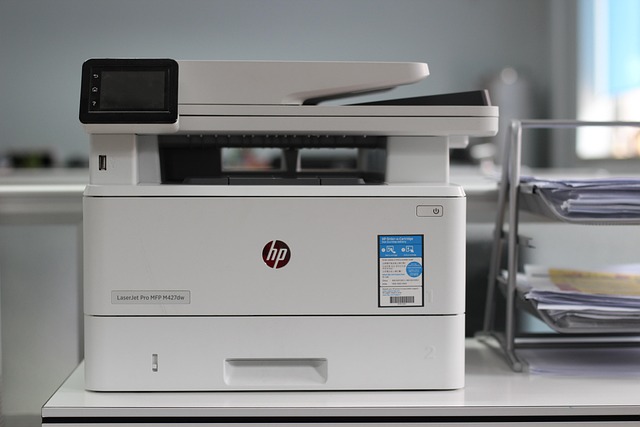Advanced whole-body cancer scan techniques using non-invasive methods and image fusion are revolutionizing cancer detection. Combining AI and machine learning, these scanners offer unparalleled accuracy in identifying early cancerous growths, aiming to integrate into routine preventive care globally. Molecular imaging enables visualization of biological processes at the molecular level, while AI algorithms process vast data for precise tumor detection, minimizing false positives and patient anxiety. This paradigm shift promises timely interventions and improved survival rates through standard whole-body cancer scans.
The race to defeat cancer relies heavily on early detection. Future innovations in cancer imaging technology are revolutionizing this battle, offering more accurate and comprehensive tools for diagnosis. From advanced whole-body cancer scans that provide unprecedented molecular insights to the integration of artificial intelligence, these breakthroughs promise to detect tumors at smaller sizes and with greater precision than ever before. This article explores cutting-edge techniques like molecular imaging, AI-assisted detection, and non-invasive imaging methods, highlighting their potential to transform cancer care.
Advancing Whole-Body Cancer Scanning Techniques
The future of cancer imaging holds immense promise, particularly in advancing whole-body cancer scan techniques. Current technologies like magnetic resonance imaging (MRI) and computed tomography (CT) scans provide valuable insights, but they are often limited to specific regions or types of cancer. New developments aim to create comprehensive, non-invasive whole-body scanning systems that can detect early cancerous growths across various organs. These innovations leverage advanced image fusion techniques, combining data from multiple modalities to produce detailed, 3D maps of the body.
With advancements in artificial intelligence (AI) and machine learning, these scanners can analyze patterns and anomalies with unprecedented accuracy, enabling earlier diagnosis and improving patient outcomes. The goal is to make whole-body cancer scans a routine part of preventive care, allowing healthcare professionals to identify and treat cancers at their most treatable stages. Such breakthroughs hold the potential to revolutionize cancer detection and significantly enhance survival rates worldwide.
Molecular Imaging: Unlocking Early Detection Secrets
Molecular imaging represents a groundbreaking approach in early cancer detection, offering unprecedented insights into the intricate world of tumor biology. This advanced technology goes beyond traditional imaging methods by visualizing biological processes at the molecular level, enabling healthcare professionals to detect even minimal cancerous cells throughout the body. With its ability to track specific molecules associated with cancer growth and metastasis, molecular imaging facilitates the development of highly sensitive and precise whole-body cancer scans.
By targeting particular biomarks, such as metabolic pathways or protein expressions unique to cancer cells, these imaging techniques can identify early tumor formation long before it becomes palpable or visible on standard scans. This early detection is pivotal in improving patient outcomes, as it allows for timely intervention and treatment, potentially transforming the way we manage this devastating disease.
Artificial Intelligence in Cancer Detection
Artificial Intelligence (AI) is poised to revolutionize cancer detection, particularly with advancements in whole-body cancer scans. AI algorithms can analyze vast amounts of medical imaging data, identifying subtle patterns and anomalies that may indicate early-stage tumors. By leveraging machine learning techniques, these systems can improve accuracy and speed in detecting various types of cancers, enabling earlier interventions.
AI-driven cancer detection offers several advantages, including enhanced sensitivity and specificity compared to traditional methods. It can also reduce false positives, minimizing unnecessary procedures and anxiety among patients. With the ability to continuously learn from new datasets, AI technology is expected to adapt and improve over time, making whole-body cancer scans a powerful tool in the fight against this devastating disease.
Non-Invasive Imaging Methods for Better Diagnosis
The future of cancer imaging is poised for a significant shift towards non-invasive methods, revolutionizing early diagnosis. Traditional techniques often involve invasive procedures with associated risks, limiting their utility for comprehensive whole-body cancer scans. However, emerging technologies offer promising alternatives. For instance, advanced magnetic resonance imaging (MRI) and computed tomography (CT) scanners are being developed to provide high-resolution images of the body’s internal structures without the need for harmful radiation or physical probes.
These innovations enable healthcare professionals to detect early signs of cancer across various organs, from tumors in the lungs to suspicious lesions in the breasts or prostate. With further refinement, whole-body cancer scans could become a standard practice, allowing for timely interventions and improved patient outcomes. This shift towards non-invasive imaging methods holds immense potential to transform cancer diagnosis and management in the coming years.
The future of cancer diagnosis lies in early detection, and the advancements in imaging technology are revolutionizing this process. From molecular imaging techniques to AI-powered analyses, healthcare professionals are now equipped with powerful tools like whole-body cancer scans to detect tumors at their earliest stages. These innovations promise more accurate, efficient, and non-invasive diagnosis procedures, ultimately improving patient outcomes and survival rates.
